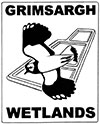Vanessa atalanta
Summary
Red admirals are large and strong flyers. You will spot them in wetlands, your garden and in local parks. Can you believe that these butterflies migrate all the way from North Africa, and Continental Europe each spring? That's a long way for such little wings! They breed in July, so we see them an abundance of caterpillars on the wetlands. Then the red admiral butterflies emerge in the late summer, to enjoy the nectar from the increasing number of wildflowers we have here. Some manage to survive our cold winter by hibernating, but most leave our shores in the autumn.
Red Admiral facts and statistics
• Relatively large: wingspan 6.2 to 7.2cm
• Caterpillars typically feed on nettles
• Adults eat nectar from a range of flowers including buddleia
• Have started to overwinter in the south of England
How to identify
The red admiral butterfly is black with broad red bands on the hind and forewings. The forewings have white spots near the tip.
Conservation status
Common
Habitat
Widespread
• Grassland
• Gardens
• Lowlands
• Farmland
• Wetlands
• Woodlands
Ways to help
Plant your garden with nectar rich plants like buddleia for butterflies to feed on. This will encourage them to visit your gardens where you can see them and log them as part of the annual Big Butterfly Count.
Red Admiral sightings at Grimsargh Wetlands






